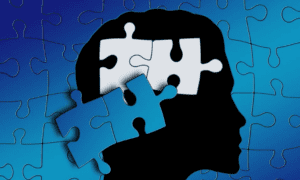Post-Traumatic Stress Disorder (PTSD) is a complex mental health condition that can deeply impact individuals who have experienced traumatic events. For those living with the effects of PTSD, daily life can be challenging as they navigate symptoms such as intrusive memories, hypervigilance, and emotional distress. Fortunately, disability benefits can offer vital support to individuals with PTSD, helping them on their journey towards healing and stability. The world of disability benefits for PTSD, shedding light on how they can provide crucial assistance to those in need.
Unraveling the Impact of PTSD:
PTSD is a psychological disorder that can develop after exposure to traumatic incidents such as combat, accidents, abuse, or natural disasters. The aftermath of these experiences can lead to a range of distressing symptoms that affect an individual’s mental, emotional, and physical well-being. People with PTSD may struggle to maintain employment, relationships, and everyday activities due to the debilitating nature of their symptoms.
The Role of Disability Benefits:
Disability benefits serve as a lifeline for individuals with PTSD, offering financial relief and support when the condition makes it challenging or impossible to work. These benefits recognize the profound impact of mental health issues on an individual’s ability to lead a fulfilling life and contribute to society. By providing financial stability, disability benefits enable individuals to focus on their recovery, therapy, and self-care.
Eligibility and Criteria:
Eligibility for disability benefits for PTSD varies depending on the country or region and the specific program in place. Generally, to qualify for these benefits, individuals must meet certain criteria that demonstrate the severity of their condition and its impact on their ability to work. This usually involves providing documented evidence of a PTSD diagnosis, its duration, and how it significantly impairs daily functioning and work capacity.
Documentation and Medical Evidence:
When applying for disability benefits for PTSD, comprehensive documentation is essential. This includes medical records, psychiatric evaluations, therapist notes, and any other evidence that validates the existence and severity of the condition. Collaborating with mental health professionals who can provide accurate and detailed assessments of your PTSD is crucial to building a strong case for benefits.
Navigating the Application Process:
The application process for disability benefits can vary in complexity depending on the jurisdiction and specific program. In general, the steps involve:
- Research: Familiarize yourself with the disability benefits programs available in your area and gather information about their eligibility requirements and application procedures.
- Gather Documentation: Compile all necessary medical documentation that supports your PTSD diagnosis and its impact on your ability to work.
- Application Submission: Complete the application forms accurately and submit them along with the required documentation.
- Review and Decision: The application will be reviewed by the relevant agency, and a decision on eligibility will be made. This may involve additional follow-up for clarification.
- Appeals (if necessary): If your application is denied, you have the right to appeal the decision by providing more evidence or addressing any issues raised in the initial review.
Seeking Professional Guidance:
Navigating the world of disability benefits can be complex, particularly when dealing with mental health conditions like PTSD. Enlisting the assistance of legal professionals or advocacy organizations experienced in disability claims can greatly improve your chances of success. These experts can guide you through the application process, ensuring you have the necessary documentation and presenting your case effectively.
From expert advice to tailored legal solutions, Find The Lawyers makes connecting with skilled lawyers a seamless experience, ensuring your legal needs are met with precision.
Living with PTSD can be a challenging journey, but disability benefits can provide a crucial safety net that empowers individuals to focus on their well-being and recovery. By understanding eligibility criteria, collecting comprehensive documentation, and navigating the application process diligently, individuals with PTSD can access the support they need to rebuild their lives. Remember, seeking help is a sign of strength, and there are resources available to guide you toward the assistance you deserve.



































